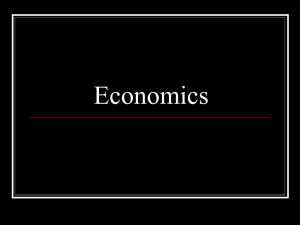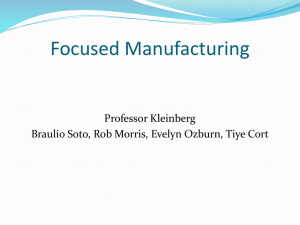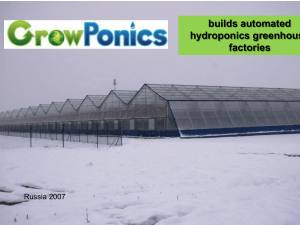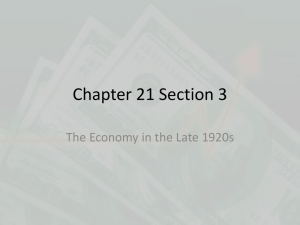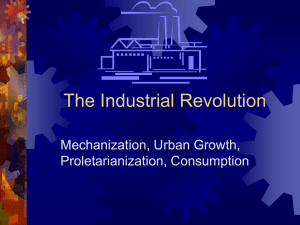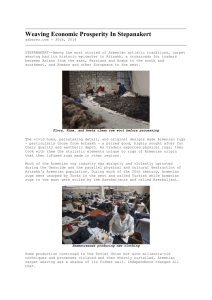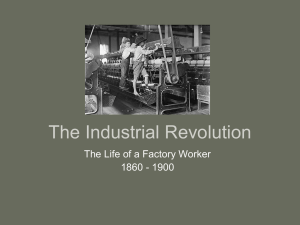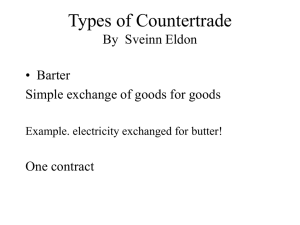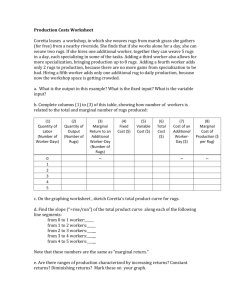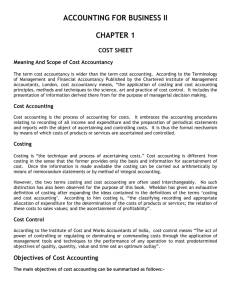Ali is a student in Ankara, 450 km away from his home
advertisement
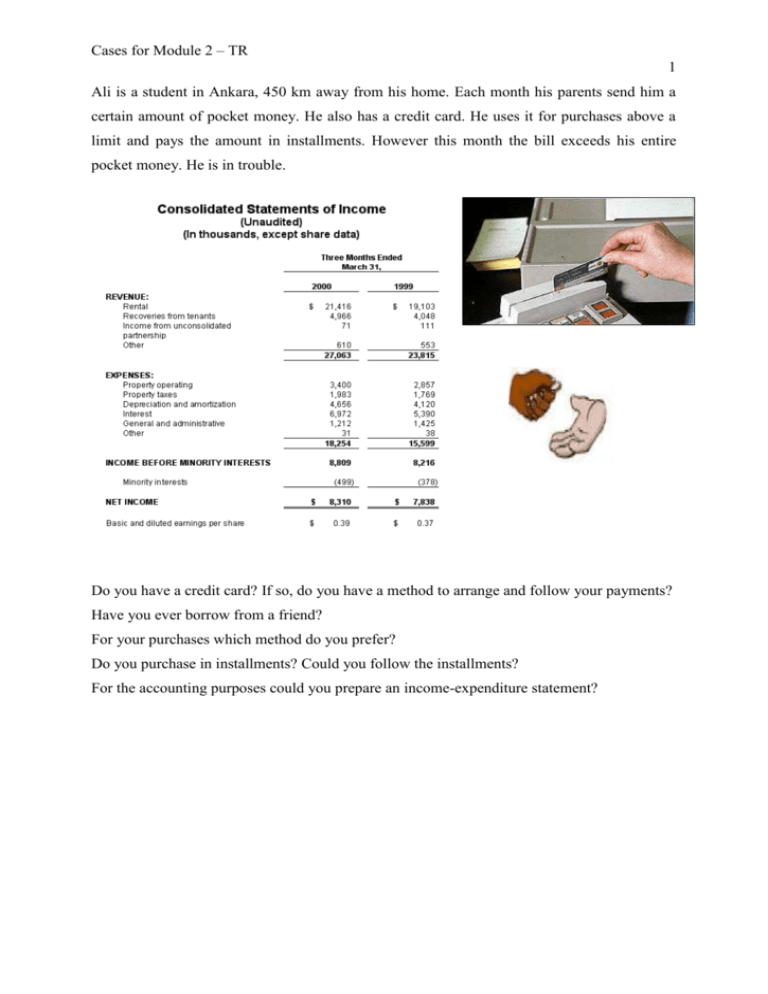
Cases for Module 2 – TR 1 Ali is a student in Ankara, 450 km away from his home. Each month his parents send him a certain amount of pocket money. He also has a credit card. He uses it for purchases above a limit and pays the amount in installments. However this month the bill exceeds his entire pocket money. He is in trouble. Do you have a credit card? If so, do you have a method to arrange and follow your payments? Have you ever borrow from a friend? For your purchases which method do you prefer? Do you purchase in installments? Could you follow the installments? For the accounting purposes could you prepare an income-expenditure statement? Cases for Module 2 – TR 2 Ahmet lives with his parents in a rented flat. Each month his father pays a certain amount for the accommodation. The family also must consume for living. Approximately the same amount of money is spent on food. The other expenses also include heating, education, gasoline, and clothing. So only a small portion of the income is left for a holiday and Ahmet always complain for it because all his friends go on holiday on summers. Ahmet is curious about the distribution of their income among the expenses. What portion of the family’s income goes to what outlay? Could you classify these expenses into service, agriculture and manufacturing? Is this classification appropriate on country level? Are your proportions and the country’s similar? Cases for Module 2 – TR 3 Ebru’s pocket money is short for everything! She can not go to cafes or purchase clothes she likes. However, last year she could. As she is interested in economics she knows the inflation rate therefore she wanted an equal increase in her pocket money. Although her family made the increase, this year the pocket money is insufficient. Sometimes she even can not use her new mobile phone or purchase cosmetics. Do you think that your pocket money is insufficient? On what do you spend at most? If you don’t purchase it, what can you purchase instead? What are the new outlays this year that did not exist last year? Do the new outlays really worth that much expenditure? Cases for Module 2 – TR 4 Last week Elif learned how to weave a rug in their arts course. She weaved the best rug of the class. Anybody who sees the rug loves it. So she decided to sell it. Her father wanted to buy it as he is proud of her daughter. As it is a good amount for Elif, she decided to weave more and earn more. However she should buy some string, paint, and scissors. These all mean expenditure. She may try some other methods to weave rugs. Have you ever produce something that can be sold? For such a material do you purchase some inputs? For a more efficient production what can be done? Cases for Module 2 – TR 5 Mr. Kiriş wants to take his students to a timber processing factory. They will analyze how many trees a factory can process, how many workers work, how much an area is necessary for a factory and for a forest? Another point is the time needed for a tree to grow. In how many years a tree grow and in how many minutes is it processed? How many timbers (Trees) does a factory process daily? For daily production how many acres of land for how many years is needed? How many workers are needed for production? Cases for Module 2 – TR 6 Ali lives in the Black Sea Region and is happy with the incredibly beautiful environment. There are a lot of streams full of fish. Near their wooden house there are two streams one of which is as bright as an open summer sky but the other is as black as coal. As he wondered the reason he discovered the source: a factory. He talked to his father about the pollution and interestingly he learned that on the other stream there is also another factory on the same sector. However the stream is still clean. Are the factories in the same sectors produce the same level of pollution? What is the reason of this difference? Cases for Module 2 – TR 7 Elif who tries to increase the number of the rugs she weaves, discovered that if she tries to increase the number of the rugs weaved the cost and the revenue does not increase proportionately. If she purchases more strings, the unit cost of string decreases. On the other hand she can weave 7 rugs at most in a week. If she wants to produce more, she should find a friend and must share the revenue. So what to do? To increase the production level which inputs should be increased? Does the increase in inputs decreases the unit cost of production? Does the efficiency increase with the production level? As a result does the profit increase? Cases for Module 2 – TR 8 Onur always consume some manufactured goods like chocolate, biscuits, mobile phones, and clothing. The interesting point that Onur is interested in is the cost of production. If he tries to produce chocolate, it costs too much. So he wants to visit a factory to see how they produce. What are the aims of an enterprise: just to minimize cost or more? What makes enterprises more competitive than home production? Are the enterprises always more competitive than home production? Is it possible to move some of the activities of an enterprise to home? Cases for Module 2 – TR 9 Nazlı works in a shop beside the school. She wants the employer to pay for her insurance but the employer always refuses to pay the bill. She is in treble because she needs money to live and also the insurance as her family has no enrollment to a social security program. She doesn’t know what to do. Does she have any formal rights to enforce her employer? Does an enterprise have a responsibility to its workers? What may be the responsibilities of an enterprise? Cases for Module 2 – TR 10 Sevim likes to read newspaper. Especially on weekends she always buys 3 or 4 newspapers. The point that she is interested in is the news and advertisements on Sundays. In the texts she always comes across with the words globalization, SMEs, TNCs, marriages (M&A) and so on. What do they mean and what are the differences? What are the recent tendencies in the production level? What are the advantages and disadvantages of SMEs and TNCs? Why do enterprises merge? Cases for Module 2 – TR 11 Imagine that, you want to build a factory and make production. What are the needs for you? (What are the main production factors?) Cases for Module 2 – TR 12 Imagine that you have a company. You are the manager of the company and you have to make a decision: Because of an increase in raw material prices you are in a bottle neck. You don’t have enough money to purchase raw materials. So you may not continue production. What would you do? Would you prefer to get loan from a bank/financial institution? Would you prefer to sell some of your goods/assets? Cases for Module 2 – TR 13 Do you know how the companies follow their accounts? How they can know what they have? What are their liabilities/loans? What are the means for a company to control its financial activities? Cases for Module 2 – TR 14 You know that each company is established to earn money. They buy and sell something. They pay money and they charge money. So how do they know how much they earn monthly/yearly? In short how they calculate their profit? Cases for Module 2 – TR 15 To survive you have to make some expenses. You buy food to eat, you buy clothes to wear, you buy/rent house to live in etc. Also companies have to survive. What kinds of expenses occur in a company? Cases for Module 2 – TR 16 We mentioned that companies make some expenses. They have costs. If they can reduce their costs, they can earn more money. So do you think that they can manage to reduce their costs? What kind of costs can be reduced? What kind of costs can not be changed? What kinds of costs are related with production quantity? Cases for Module 2 – TR 17 Some of the companies make production. Some of them buy and sell goods. Some of them make financial activities. But all of them get revenue from those activities. What are the income/earnings of a company? Cases for Module 2 – TR 18 Imagine that you have a company and make production. But your machines are old fashioned. Because of technologic development you learned that there are new kinds of machines in the market. But if you buy these machines you have to dismiss some of your employees. You are sure that if you buy this new technology, your profit will increase. What would you do in this situation? Cases for Module 2 – TR 19 You know that garbage occur in our houses every day. We throw them to trash can. Later on garbage truck come and collect them. Likewise in factories some garbage occurs. What are they? They may pollute the environment. They may pollute the air. Those are called industrial waste. Do you think that companies/factories can make environmental management? Can they reduce their waste? They can make energy saving? They can use recycling? Cases for Module 2 – TR 20 You are interested in trade, finance, and money. You dream of to set up an enterprise one day. What would it be? Imagine that you have limited money. What would you do to set up the enterprise as an entrepreneur?
